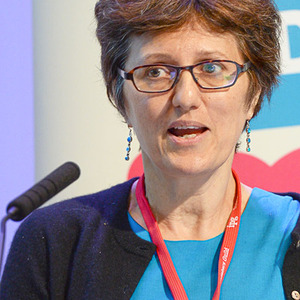You are viewing your 1 free article this month. Login to read more articles.
Authorial altruism
It is high time changes were made to ensure that authors are fairly rewarded for their work and taken care of by their publishers.
The Authors’ Licensing & Collecting Society’s fourth survey into author incomes carries the stark headline that median income of full-time professional authors has fallen by more than 60% in 16 years. In 2006, median author earnings were £12,330. In 2022, that has fallen to £7,000, a drop of 33.2%, or 60.2% when adjusted for inflation.
The median earnings headline always causes publishers to raise their eyebrows, question the figures and say that they are paying more to authors than ever before, so I am pleased that we are talking to the Publishers Association about a survey of its own members to see what the figures look like from its end.
But focusing only on the headline obscures other worrying findings—and indeed, the fact that these figures are not incompatible with higher total payments to authors but still lead to a profession which is unsustainable for many, threatens the diversity of voices. The survey shows that the top 1% of authors earn 24%, and the top 10% of authors 47%, of all author income. Authors’ dependence on portfolio earnings has increased and women, Black and mixed-race authors, along with younger and older authors, all earn less than their comparators. Most authors rely on incomes of other household members.
We need more initiatives to continue to diversify the voices... and to ensure that a career as an author is not the preserve of a privileged few
And it isn’t only income. Authors report contracts are becoming less favourable, advances are becoming rarer, while copyright buyouts are increasing. At the Society of Authors (SoA), we vet more than 6,000 author contracts a year and the findings certainly chime with our experience.
Amy Thomas, the lead researcher in the survey team, said: “While many of our respondents talked about their love of creating and passion for writing, relying on their altruism has been used to justify an increasingly unliveable wage.” Authors are recognising we can’t go on like this. The proportion of authors earning all their income from writing has decreased from 40% in 2006 to 19% today.
We need more initiatives to continue to diversify the voices and stories that are published, and to ensure that a career as an author is not the preserve of a privileged few. We need to encourage the best and most imaginative to write books rather than risk losing those people to more lucrative careers because of a lack of secure terms and remuneration. This isn’t only about more money or one-off programmes to encourage diversity. There are so many things that publishers can do throughout an author’s career to keep them supported.
Benefits
Publishers should consider extending to their authors benefits they provide without question to employees, such as sick pay, parental benefits and death in service insurance. All publishers could hold contingency funds for these purposes. At present, the only recourse is the Royal Literary Fund and the SoA’s Contingency Fund, neither of which are supported by publishers.
Publishers could offer authors the opportunity to join their pension funds and perhaps contribute a small incentive, such as an extra 5% of an author’s royalty payments. Royalties tend to tail off towards the end of a career and surprisingly few authors have pension provisions.
Publishers’ financial departments should regularly update contact details and hold addresses for next of kin so that they don’t end up holding untraceable funds. They should also develop mechanisms to pay money out to authors even if their agents have disappeared.
Support mechanisms are important too. Checking in frequently and allowing authors access to publishers’ Employee Assistance Programmes would be relatively inexpensive but could be a life-saver in times of illness or mental health crisis.
Fairer contracts
Let’s be fairer about contracts. All contracts should comply with the SoA’s Creator principles: clarity, remuneration, exploitation, accounting, terms, ownership and resonableness.
Publishers should commit to the transparency triangle: equitable and unwaivable remuneration for each use of the work, including a “bestseller clause”, so if a work does far better than expected, the creator shares in its success, even if copyright was assigned. There must also be fair, understandable and detailed accounting clauses in all contracts to cover royalty payments and other sources of remuneration, and reversions if rights aren’t being exploited or if income falls below a minimum figure. We see far too many cases where these basic principles are not followed.
Collaboration
The whole industry is beginning to pull together on sustainability. I was thrilled at the creation this year of the Sustainability Industry Forum. We did the same when creating the Industry Commitment to Professional Behaviour in Publishing, which we are looking to update to cover equality, diversity and inclusion issues. Now let’s work together to make the industry truly sustainable for the creators it relies on, by supporting authors throughout their working lives and incentivising them to continue to create exciting, diverse books reflecting a range of experiences and views. This isn’t altruistic—it’s what we need to attract the wide pool of readers on whom we all depend.




















